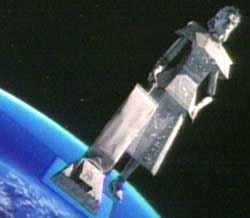
"The days of telling kids to go home at 2:30 and having mom there with a peanut butter sandwich, those days are gone....the hours from 3 o’clock to 7 o’clock are a huge anxiety, and that’s why we have to keep our schools open longer."Arne the Scarecrow
Many families have limited choices.
Daddy's working. Mommy's working. Grandma's in the old people warehouse.
And we need kids to improve their test scores so that they can compete with the children in India and Sri Lanka, to make more goods few of us need, to keep Mommy and Daddy at work even longer.
***
Maybe Arne should take a peek at Bob Herbert's column today. Arne keeps talking of moral obligations. Herbert today is talking of sin ("A Sin and a Shame").
"At the end of the fourth quarter in 2008, you see corporate profits begin to really take off, and they grow by the time you get to the first quarter of 2010 by $572 billion. And over that same time period, wage and salary payments go down by $122 billion.”Andrew Sum, PhD
Director of the Center for Labor Market Studies
Northeastern University
That's called a clue, Arne.
If you want families to raise healthy, educated, well-rounded children, at least one adult needs to be home during a child's waking hours.
An adult who can show a child how to sow, how to fix things, how to enjoy life outside the classroom, outside the office, outside the car. Maybe even how to love.
Want to raise school performance? Raise minimum wage to a level that allows a child to see an adult family member for at least half the time she's conscious, doing something worthwhile besides "earning a living."
The Ozzie and Harriet photo is from a website that sells the videos.
And yes, Duncan's quote is sexist, but it's so stupid I doubt he's doing any harm with it.
I'll get back to teaching science again soon.
And yes, Duncan's quote is sexist, but it's so stupid I doubt he's doing any harm with it.
I'll get back to teaching science again soon.








































